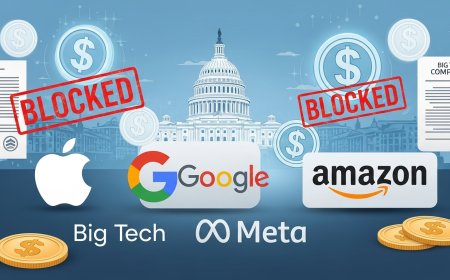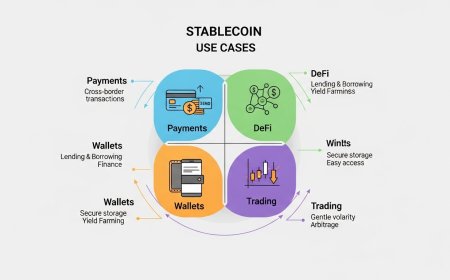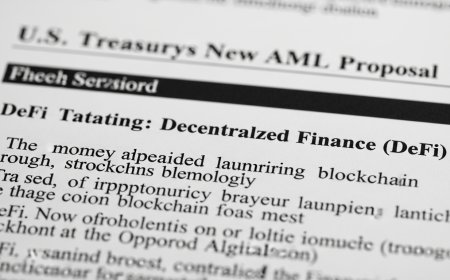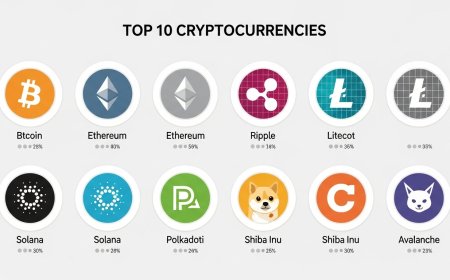Why Apple Can't Launch AppleCoin: The GENIUS Act Plot Twist That Changes Everything
The GENIUS Act just blocked Apple, Google, and Meta from launching their own stablecoins. Here's why this Big Tech crypto ban changes digital payments forever and what it means for investors.
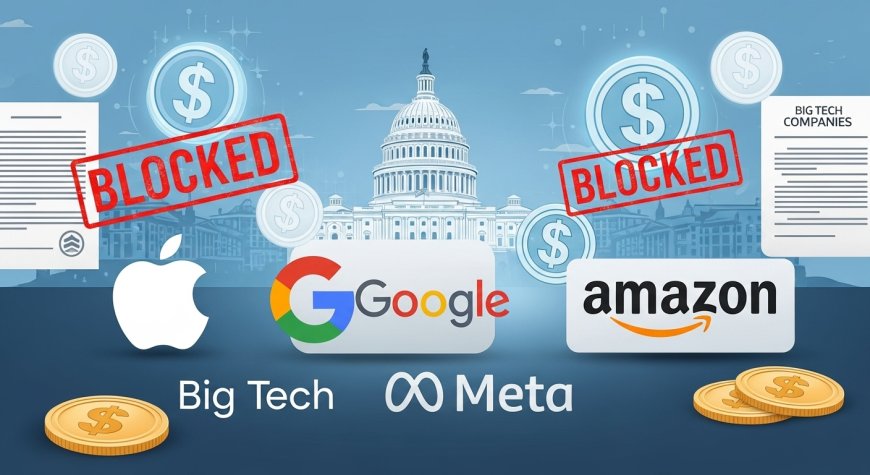
Why Apple Can't Launch AppleCoin: The GENIUS Act Plot Twist That Changes Everything
Breaking: Congress just blocked Big Tech's stablecoin dreams, and the implications are massive
The crypto world just witnessed a seismic shift that most people completely missed. While everyone was celebrating Bitcoin's climb past $120,000, a quiet provision in the GENIUS Act just redrew the battle lines for digital payments forever.
The Bombshell Nobody Saw Coming
Here's what just happened: The GENIUS Act, which passed Congress with bipartisan support, includes a provision that effectively bans Big Tech companies from launching their own stablecoins. This isn't just regulatory fine print—this is a direct shot across the bow of Apple, Google, Meta, and Amazon's digital currency ambitions.
According to insider reports, Democrats successfully added an amendment that forces tech giants to use established stablecoin companies like Tether and Circle instead of creating their own digital currencies. The message is clear: Silicon Valley won't control America's digital dollar.
What This Really Means for Your Digital Wallet
For Apple Users:
- No "AppleCoin" integrated into Apple Pay
- Apple must partner with existing stablecoin providers
- Your iPhone wallet stays dependent on traditional payment rails
For Meta's Metaverse Plans:
- Remember Libra/Diem? That dream is officially dead
- Any metaverse currency must go through regulated partners
- Meta loses direct control over its digital ecosystem's money
For Google's Payment Future:
- Google Pay can't issue its own digital dollar
- Search giant must play by banking rules
- Partnership model becomes the only path forward
The Loophole That Changes Everything
But here's where it gets interesting: Big Tech isn't completely locked out. The GENIUS Act allows tech companies to issue stablecoins if they "establish or partner with regulated financial entities." This creates a fascinating new dynamic:
- Partnership Gold Rush: Traditional banks suddenly become extremely valuable partners
- Regulatory Arbitrage: Tech companies will shop for the most crypto-friendly banking partners
- Innovation Through Collaboration: Forced partnerships might actually accelerate innovation
Why This Actually Protects Consumers
The restriction addresses legitimate monopoly concerns. As one industry analyst noted, preventing "Big Tech behemoths like Amazon, Meta, Google and Apple to own and operate their own stablecoin" stops them from forcing customers to use proprietary currencies.
Imagine if you could only buy apps with AppleCoin, or if Amazon required AmazonCoin for purchases. The GENIUS Act just prevented that dystopian scenario.
The Winners and Losers
Clear Winners:
- Circle and Tether: Established stablecoin providers become indispensable partners
- Traditional Banks: Suddenly valuable as crypto gateway partners
- Consumers: Protected from tech giant currency monopolies
- Competition: Market stays open to innovation
The Losers:
- Big Tech Control: Can't create closed-loop currency systems
- Vertical Integration: Tech giants lose payment stack control
- Speed to Market: Partnership requirements slow deployment
What Happens Next
This regulatory framework creates three possible scenarios:
- Partnership Boom: Tech giants rapidly partner with existing providers
- Banking Acquisitions: Major tech companies buy smaller banks to qualify
- Regulatory Arbitrage: Companies shop for crypto-friendly jurisdictions
The smart money is on scenario one. Expect major partnership announcements within months as tech companies scramble to maintain their payment ambitions within the new legal framework.
The Bigger Picture
The GENIUS Act's tech restrictions represent something bigger than crypto regulation—they're about preventing the complete digitization of money from falling under Big Tech's control. This is financial sovereignty in the digital age.
For crypto investors, this creates new opportunities. Instead of fearing Big Tech domination, we now have a regulatory framework that promotes competition and innovation while preventing monopolization.
Bottom Line
The GENIUS Act didn't just regulate stablecoins—it preserved competition in digital payments. Apple can't launch AppleCoin, but they can partner with Circle. Google can't control digital dollars, but they can innovate within regulated frameworks.
This isn't the end of Big Tech's crypto ambitions—it's the beginning of a more collaborative, regulated, and ultimately more innovative digital payment future.
The crypto landscape just got more interesting, and the biggest players just learned they have to play by new rules.
What's Your Reaction?
 Like
0
Like
0
 Dislike
0
Dislike
0
 Love
0
Love
0
 Funny
0
Funny
0
 Angry
0
Angry
0
 Sad
0
Sad
0
 Wow
0
Wow
0












